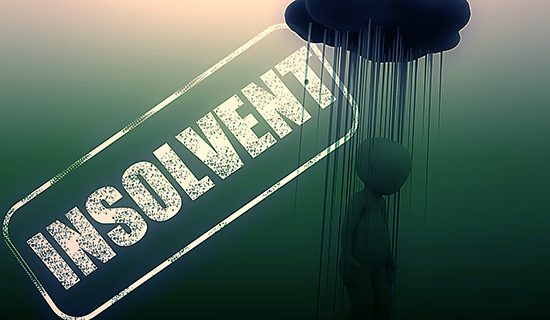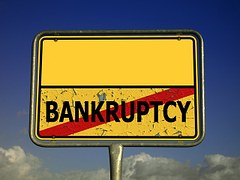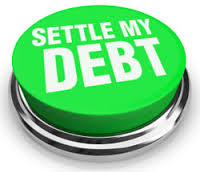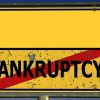Bankruptcy – Chapter 13 – Pros & Cons

It can be frightening to be over your head financially. Should you find yourself in this position, there are several kinds of help available. Debt Settlement of your unsecured credit card debt through SettleiTsoft®, the free online debt negotiation software platform, should be considered. However, if that is not feasible, then bankruptcy – usually considered the last resort – may be necessary to resolve your financial distress.
Individuals have two options for filing bankruptcy. One is Chapter 7 where you liquidate your assets, the other is Chapter 13.
 The good news about filing Chapter 13 bankruptcy:
The good news about filing Chapter 13 bankruptcy:
- While it will take you longer to get out of debt using Chapter 13 bankruptcy, you will have more time to make payments on your debt and the Chapter 13 Trustee may be flexible on the terms of your payments. You may have the option to stretch out your debt payments, reduce the amounts of your debt payments, or relinquish an item of your property that you are making payments on. Also, once you have fulfilled your repayment plan under Chapter 13, individual creditors cannot obligate you to pay them in full.
- While making payments under a Chapter 13 bankruptcy, you get to keep all the property on which you are making payments and all other assets you already own.
- Often it is easier to explain a bankruptcy to a future lender than it may be to explain missed debt payments, defaults, repossessions and lawsuits.
- You may be able to establish new lines of credit within one to three years of filing bankruptcy, although at much higher than average interest rates.
- You may file a Chapter 13 repeatedly should you experience another disaster, although each filing will appear on your credit record.
- Bankruptcy will alleviate many, but not all, of your financial obligations.
- Aggressive collection actions will cease.
- Debts not canceled in a Chapter 7 discharge can be reduced in a Chapter 13 bankruptcy.
- Any co-signers are immune from the creditor’s efforts as long as the Chapter 13 plan provides for full payment.
- You have protection against foreclosure on your home.
- You can file Chapter 13 after your Chapter 7 discharge in order to pay off any remaining liens.
- You can separate your creditors by class. Different creditor classes receive different percentages of payments. This allows you to treat debts where there is a co-debtor involved on a different basis than debts you incurred on your own.
- Some of your original debts may be reduced. If so, you won’t be paying off all the interest and other fees.
 The downside to filing Chapter 13 bankruptcy:
The downside to filing Chapter 13 bankruptcy:
- It can take up to five years for you to repay your debts.
- You must pay debts out of your post-bankruptcy disposable income; meaning whatever income you have left after paying for necessities such as food, shelter and medical care. This ties up your cash during the entire repayment period.
- Some debts, such as mortgage liens, will survive after your bankruptcy is closed; and you must continue paying those debts.
- Legal fees are higher than for Chapter 7 because Chapter 13 filing is more complex.
- Your total debt must be less than $1,000,000, unsecured debts less than $250,000 and secured debts less than $750,000.
- Your debt can linger for years, burdening your future income.
- Bankruptcy will ruin your credit for quite some time. A Chapter 13 bankruptcy can remain on your credit report for up to 10 years.
- You will lose all your credit cards.
- Bankruptcy will make it nearly impossible to obtain a mortgage, if you don’t already have one.
- You cannot file for Chapter 7 bankruptcy if you previously went through bankruptcy proceedings under Chapter 13 within the last six years.
- Declaring Chapter 13 now will make it harder to declare Chapter 7 bankruptcy later.
- You will have to go through the humiliating experience of explaining to a judge and/or trustee how you got into these financial straits, divulging private information.
- You cannot file for Chapter 13 bankruptcy if a previous Chapter 7 or Chapter 13 case has been dismissed within the past 180 days due to you violating a court order, or your having requested the dismissal after a creditor asked for relief from the automatic stay.
- Stockbrokers and commodity brokers cannot file for Chapter 13 bankruptcy.
Most importantly, you need to take a good hard look at your current situation, compare all consumer debt solutions, including debt settlement and debt consolidation, in order to determine what the best solution is for you. If this all sounds a bit complicated, that’s because – for most people – it is.
Remember, bankruptcy is intended for those in serious financial hardship. Before making any decision, it is important to speak with a qualified, licensed attorney and find out if bankruptcy is the best option for you. Learn more from the FTC’s Filing for Bankruptcy: What to Know.
Please Note: This information is for educational purposes only. For specific advice, please contact a licensed professional.
Related Article: Bankruptcy Basics



 Login
Login






